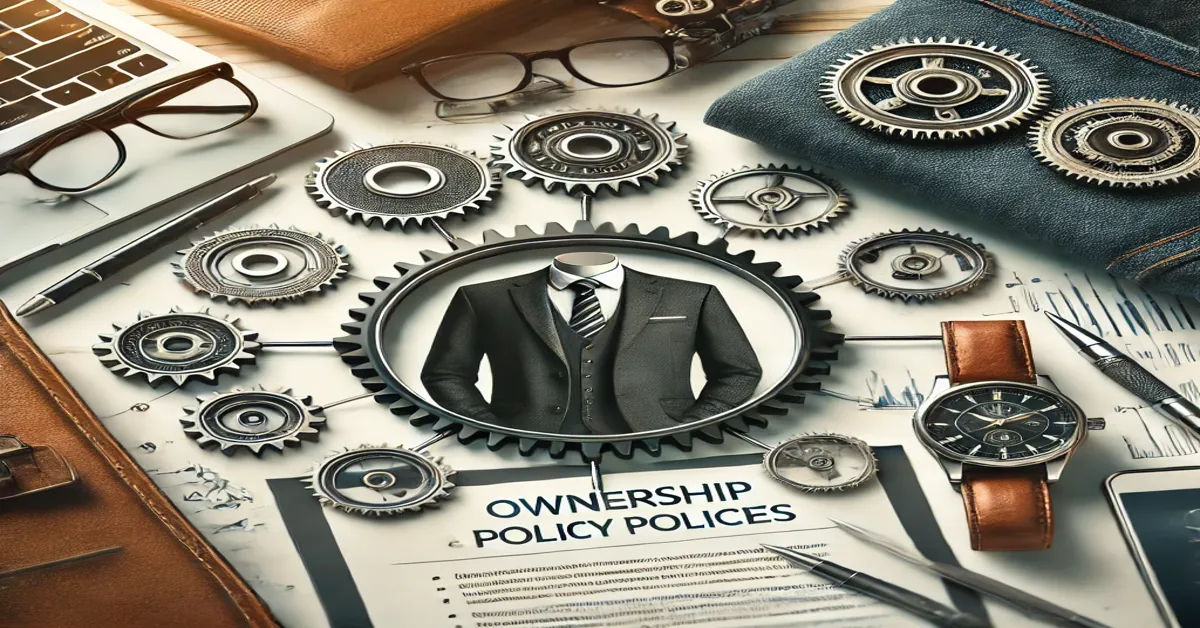When it comes to managing company gear knowing how long you can keep it before selling is an important consideration for both employees and business owners. Company gear, which can include everything from office equipment and machinery to laptops and mobile devices, plays a vital role in maintaining efficient operations. But over time, equipment becomes outdated, unnecessary, or replaced with newer models. Understanding when you can sell company gear—and the factors that impact this timeline—helps you navigate company policies and legal guidelines responsibly.
This article delves into the considerations around how long you can have company gear before selling it, exploring the factors that affect this decision, relevant policies, and best practices to ensure a smooth and compliant process.
What is Company Gear?
Company gear refers to any equipment, tools, or devices that are purchased by a business to support daily operations. This gear can range from large machinery in industrial settings to office furniture, computers, and mobile devices in corporate environments. Company gear is typically considered a business asset, meaning that it is owned by the company and provided to employees for specific work purposes.
Given that company gear is a business asset, it is generally intended for professional use and may have specific guidelines and restrictions when it comes to selling or repurposing it.
Why Might You Consider Selling Company Gear?
There are several reasons a company might decide to sell company gear:
- Upgrades and Replacements: Technology and equipment evolve rapidly. When a business upgrades to newer, more efficient tools or machinery, it may decide to sell the older items to recoup part of the investment.
- Reducing Maintenance Costs: Older gear often requires more maintenance. By selling outdated equipment, companies can save on repair costs and reduce overhead.
- Space and Storage Concerns: Excess or outdated gear takes up valuable storage space. Selling these items can help declutter and make room for new equipment.
- Financial Considerations: Selling unused or obsolete assets can improve a company’s cash flow, especially if the items still have value in the resale market.
Whether driven by practical, financial, or operational reasons, the decision to sell company gear requires careful consideration and adherence to company policies.
Factors That Affect How Long You Can Have Company Gear Before Selling It
Several factors determine how long you should keep company gear before selling it. These include the type of equipment, its condition, company policies, and any applicable financial or legal guidelines. Here’s a closer look at these factors:
Depreciation and Asset Lifespan
Depreciation is the reduction in value of an asset over time, usually calculated on an annual basis. Most companies have policies that determine the lifespan of various types of gear based on their depreciation schedules. For example:
- Computers and Electronics: Typically, computers and mobile devices depreciate within 3-5 years. Once they reach the end of their depreciable life, the company may choose to sell or replace them.
- Office Furniture and Fixtures: These items often have a longer lifespan, sometimes up to 10 years. Once they are fully depreciated, companies might consider selling them if they are still in usable condition.
- Heavy Machinery and Vehicles: Large equipment and vehicles may depreciate over a longer period, depending on their usage and condition. The resale timeline may vary based on specific industry standards and regulations.
Understanding depreciation helps businesses decide when it’s financially viable to sell company gear.
Company Policies and Guidelines
Most companies have asset management policies that outline the procedures for purchasing, maintaining, and selling business assets. These policies can dictate when company gear can be sold, whether based on its age, condition, or other factors. Employees or managers considering the sale of company gear should review these guidelines to ensure compliance. Some companies may require approval from finance or management departments before any assets are sold.
Condition and Usability of the Gear
The condition of the gear is another crucial factor. Well-maintained equipment that remains in good working order may retain value longer and fetch a higher price on the resale market. On the other hand, gear that shows significant wear and tear may no longer be usable or desirable for resale, prompting an earlier decision to sell.
Market Demand and Resale Value
For certain types of company gear, market demand can influence the resale timeline. For instance, electronic equipment or certain office furniture may still have resale value even after several years of use. Conversely, outdated technology or specialized equipment with limited demand may be harder to sell as time goes on.
Companies may choose to sell certain items while there is still market demand to maximize their resale value.
Legal and Tax Considerations
Certain legal and tax considerations may also impact the timeline for selling company gear. For instance, tax regulations often dictate how depreciation can be calculated and what tax implications might apply when selling company assets. Some businesses may benefit from selling fully depreciated assets, while others may follow industry-specific guidelines that impact the timing of sales.
Consulting with a tax professional can help ensure that any sales align with tax regulations and that the company maximizes any available deductions.
Steps for Selling Company Gear Responsibly
Once the decision to sell company gear has been made, it’s essential to follow a structured process to ensure compliance with company policies and industry standards. Here’s a general guide to selling company gear responsibly:
Review Company Policies and Obtain Necessary Approvals
Start by reviewing the company’s asset management policies and obtaining any necessary approvals from management or finance departments. Ensure that the sale aligns with any internal guidelines related to asset disposal.
Determine the Fair Market Value
Conduct a market assessment to determine the fair resale value of the gear. This step may involve consulting industry-specific resale platforms or getting estimates from third-party vendors. Properly valuing the items can help ensure that the sale is both fair and financially beneficial.
Choose an Appropriate Sales Channel
Depending on the type of gear, you can choose from several sales channels. Options include online marketplaces, industry-specific resale platforms, or local auctions. For specialized equipment, working with a reseller who has experience in that specific market can improve your chances of a successful sale.
Document the Sale
Documenting the sale is essential for accurate financial reporting. Record details like the sale price, buyer information, and any additional fees associated with the sale. Proper documentation helps maintain transparency and ensures that the sale complies with tax and financial reporting standards.
Update Asset Management Records
After the sale, update the company’s asset management records to reflect the transaction. This step ensures that inventory records remain accurate and that any future audits or evaluations have a complete and up-to-date asset list.
Alternatives to Selling Company Gear
If selling company gear isn’t an immediate option, there are several alternatives to consider:
- Donation: Some companies choose to donate gear to schools, nonprofits, or community organizations. This approach not only benefits the community but may also offer tax benefits.
- Repurposing: For items that are still functional but no longer needed in their current role, repurposing within the company can extend their useful life.
- Trade-In Programs: Many vendors offer trade-in programs where companies can exchange old equipment for discounts on new purchases.
- Recycling: In cases where the gear is no longer usable, recycling may be the best option. Environmentally responsible disposal is especially important for electronics, which may contain hazardous materials.
Conclusion
Understanding how long you can keep company gear before selling it requires a careful evaluation of company policies, asset lifespan, and market conditions. By following these guidelines and considering alternatives to selling, businesses can make informed, responsible decisions about managing and disposing of their assets. Selling company gear at the right time ensures that businesses maximize the value of their assets while minimizing unnecessary maintenance costs, helping to create a more efficient and productive workplace.
Whether you’re an employee looking to sell company equipment or a business owner aiming to optimize asset management, these considerations provide a framework for navigating the process successfully.











